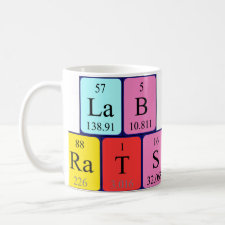
Authors: Shah N, Ha J, Ul-Islam M, Park JK
Article Title: Highly improved adsorption selectivity of L-phenylalanine imprinted polymeric submicron/nanoscale beads prepared by modified suspension polymerization.
Publication date: 2011
Journal: Korean Journal of Chemical Engineering
Volume: 28
Issue: (9)
Page numbers: 1936-1944.
DOI: 10.1007/s11814-011-0043-3
Abstract: Molecularly imprinted polymer (MIP) submicron/nanoscale beads selective for L-Phenylalanine (L-Phe) and D-Phe as well as non-imprinted beads were prepared by modified suspension polymerization involving agitation of the reaction mixture at high rotation speed under safe radical conditions. The effects of pH, template and concentration of racemate solution on the performance of the phenylalanine (Phe) imprinted polymeric submicron/nanoscale beads were studied. L-Phe-imprinted submicron/nanoscale beads prepared for the first time by modified suspension polymerization showed enhanced adsorption capacity and selectivity over those of D-Phe imprinted and non-imprinted beads. Maximum adsorption capacity, 0.35 mg/g, and selectivity, 1.62, of L-Phe imprinted submicron/nanoscale beads were higher than the adsorption capacities, 0.30 and 0.19mg/g, and selectivities, 1.59 and 1.02, of D-Phe imprinted and nonimprinted submicron/nanoscale beads, respectively. FE-SEM analyses revealed that L- and D-Phe imprinted beads were larger (100 nm-1.5 μm) than non-imprinted nanobeads (100-800 nm). 13 C CP-MAS NMR spectroscopy helped in correlating the bead sizes and the extent of reaction during polymerization. Similarly, FT-IR study was used for evaluation of structural characteristics of the prepared Phe-imprinted and non-imprinted beads. The preparation of Phe-imprinted submicron/nanoscale beads with improved adsorption and separation properties and the study of effect of template on the size and performance of the prepared beads are suitable from both economical and research point of view in MIP field
Template and target information: L-Phenylalanine, L-Phe
Author keywords: Molecularly Imprinted Submicron, Nanoscale Beads, modified suspension polymerization, FE-SEM, FT-IR, 13C CP-MAS NMR



Join the Society for Molecular Imprinting

New items RSS feed
Sign-up for e-mail updates:
Choose between receiving an occasional newsletter or more frequent e-mail alerts.
Click here to go to the sign-up page.
Is your name elemental or peptidic? Enter your name and find out by clicking either of the buttons below!
Other products you may like:
 MIPdatabase
MIPdatabase









